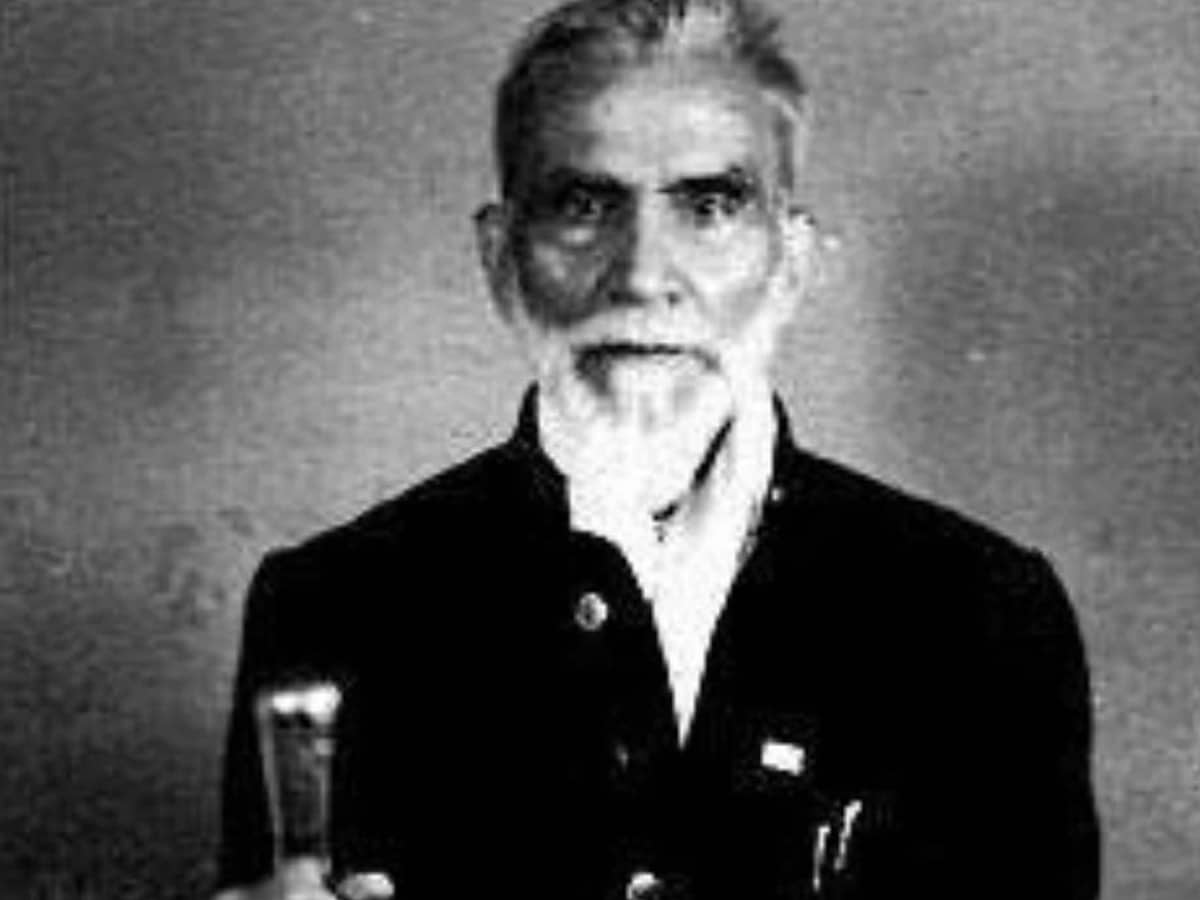By Tariq Hasan
Aligarh: Raja Mahindra Pratap the noted freedom fighter, , humanist and President of India’s first provisional government in exile established in Kabul in 1915 was one of the 20th century’s foremost “champions of secularism in India.”
The writer of this article is Rahat Abrar, a veteran Urdu journalist and former director of Urdu Academy.
According to Abrar who is also a prominent historian of the Aligarh movement and has authored more than half a dozen books on this subject Mahindra Pratap’s father the Raja Ghanshyam Singh of Mursan and his father Raja Teekam Singh were “very close friends of Sir Syed Ahmad Khan. When the Raja suffered a premature death the family accepted Sir Syed’s offer to take the young prince under his tutelage and he was admitted at the MAO College School where he began his formal education.”
Raja Mahindra Pratap was “the only student in the history of the MAO college who was given the privilege of his personal lodging at the campus where he was permitted by the college authorities to have his personal cook and attendants.”
Referring the controversy over land donation by the Raja to the AMU, Abrar said, “Raja Teekam Singh had donated Rupees 800 / – for Sir Syed’s Scientific Society and Raja Ghanshyam Singh had donated Rupees 1500 as donation for the construction of the first hostel of the MAO College.”
Raja Mahindra Pratap had also given 1.2 hectare of land on lease on a token amount of Rs 2 per annum in 1929 for the MAO College School where he had been a student.
This plot of land is outside the main university campus the land for which was acquired by Sir Syed from the army cantonment and was not connected in any way to the vast estate of Raja Mahindra Pratap. Raja Mahindra Pratap, however, made extensive donations to different educational and social organizations in Aligarh and Mathura districts.
Regarding the special privilege of being permitted to stay in a separate bungalow as a resident student in the year 1895 Abrar said, “This privilege was accorded to him because Sir Syed was conscious of the fact that he owed this to his late friend who had left behind a big fortune for his family and hence it was important that his heir should receive the best education.”
Raja Mahindra Pratap who was an ardent humanist had founded several organisations in the 1930s and 1940s during his three decades long exile from India including the World Federation and The Religion of Love, Abrar said .
Abrar pointed out that Raja Mahindra Pratap was one of the key architects of the famous “Reshmi Roomal” movement which the British government dubbed as the “silk letter conspiracy.” The main figures of this movement were his friends Maulana Mahmoodul Hasan the leading Muslim scholar of his time from the Deoband seminary, Maulana Hussain Ahmad Madani also from the Deoband School and Maulana Barkatullah Khan from Bhopal who was later appointed as the prime minister of the Provisional government in exile.
Maulana Mahmoodul Hasan and Maulana Hussain Ahmad Madani were arrested by the British in Arabia when the British got wind of the conspiracy but Raja Mahindra Pratap and Barkatullah Khan managed to escape from Kabul before the British agents could get their hands on them.
Raja Mahindra Pratap was also closely associated with the revolutionaries of the Europe and USA based Ghadar Party and was coordinating their activities with the Muslim revolutionaries.
According to Raja Mahindra Pratap’s biographer Dr Veer Singh in his book Life and times of Raja Mahindra Pratap in year 1935 Mahatma Gandhi and Pundit Jawaharlal Nehru made frantic efforts with the government to end Raja Mahindra Pratap’s exile after he had been forced to stay abroad for two decades but they did not succeed to secure permission to enter the country.
Throughout his exile Raja Mahindra Pratap remained an active member of the Indian National Congress and during the Second World War when he was in Japan the American government arrested him and he spent about months in jail till “Mahatma directly intervened” and secured his release from prison in 1946.
The book mentions that in 1952 prime minister Jawaharlal Nehru offered him a party ticket to contest the first parliamentary election and Raja Mahindra Pratap agreed. However, when he was asked to sign a pledge that he would abide by the “regulations of the party” he declined to do so saying that he was only answerable to his conscience.
In 1957 Raja Mahindra partap stood as an independent candidate from the Mathura parliamentary seat and defeated Atal Bihari Vajpayee who was the Jan Sangh candidate.
As mentioned in his autobiography throughout his life he espoused the cause of Hindu-Muslim unity with un-parallel passion. In his autobiography “My Life Story” Raja Mahindra Pratap states
“Our family has always been pro Islam in spite of our orthodox Vaishnav religion. The title of Raj Bahadur was given to the Mursan family by the Mughal Emperors.”
According to the noted scholar and political historian Professor Shan Mohamad, “Raja Mahindra Pratap is one of the most remarkable figures of India’s freedom movement and his commitment to the cause of a secular democratic India marks him as a giant of his times. His commitment for the cause of secularism is comparable to Gandhi and Nehru.” Tariq Hasan

